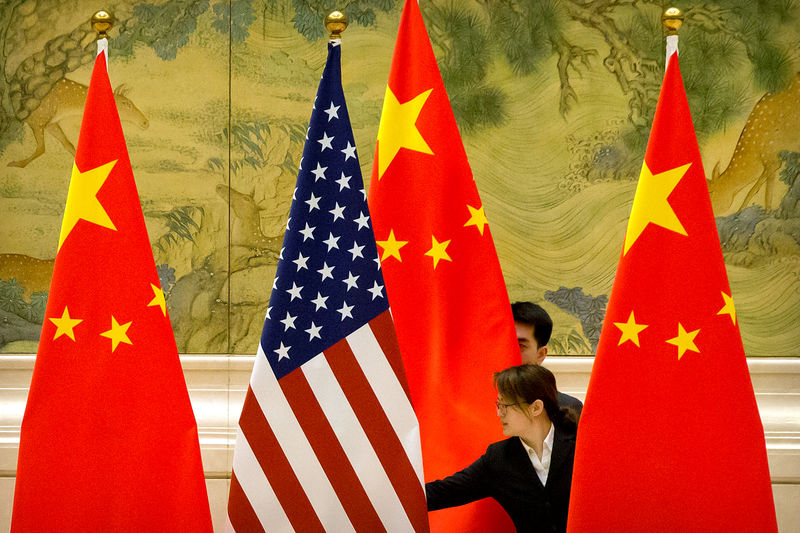By Brenda Goh
SHANGHAI (Reuters) - As the U.S.-China trade war drags into its 16th month and continues to disrupt supply chains, more than one-quarter of multinational firms have not made contingency plans, showed a survey from a subsidiary of courier giant DHL.
The survey https://www.resilience360.dhl.com/resilienceinsights/impact-of-the-u-s-china-trade-war-on-global-supply-chains by DHL Resilience360, a supply chain risk management software platform under Deutsche Post AG's (DE:DPWGn) courier unit, included 267 anonymous responses from supply chain executives across industries including healthcare, automotive and consumer.
Over half of respondents were from companies with annual revenue of over 1 billion yuan ($142 million) and most were from the United States and European Union, the survey showed.
Of respondents, 48% from the engineering and manufacturing industry and 40% from the automotive mobility sector reported that they had no contingency plans at all, even though both fields have been heavily targeted by both countries in the trade war.
"We're now dealing with such a new frontier that most supply chain professionals have not encountered this before and its so new that I think a lot of people are struggling to even understand what they can do to deal with it," said Shehrina Kamal, product director for risk monitoring at DHL Resilience360.
Of those that had decided against relocating or shifting production out of China, some said they were unaffected by the trade war. However, 43% said long-established connections with Chinese factories and suppliers as well cost and time were among reasons for staying put. Just 8% of respondents said they expected tariffs to eventually be removed.
Of the 12% of respondents that have moved manufacturing out of China, some said they faced headaches such as a lack of skilled labor, heavy port congestion and maintaining supplier quality, the survey showed. India and Vietnam were among the most popular alternative locations.
The United States and China have imposed tariffs on billions of dollars worth of each other's goods since July 2018 as trade friction between the world's two biggest economies worsened despite several rounds of negotiation. Industries that have been hit so far include automotive, retail and technology.
A "phase one" deal that would cool trade tension and roll back some of the tariffs had been expected in November but has yet to be agreed.
The disruption has led other Asian countries to compete for investment from companies moving supply chains to escape higher tariffs, with governments offering tax breaks, promising to slash red tape and sending trade missions.

($1 = 7.0389 Chinese yuan renminbi)